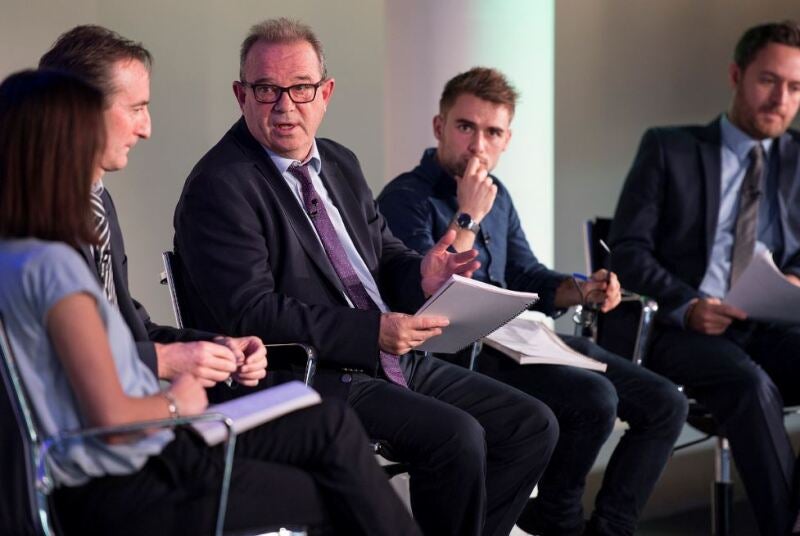
Head of Sky News John Ryley said yesterday that British journalists were taken by surprise by the outcome of last year’s Brexit vote because of lack diversity in newsrooms.
And speaking at the National Council for the Training of Journalists skills conference, which was hosted by Sky yesterday, he described this year’s UK general election result as a “rage against the machine” of journalism at Westminster.
He said: “To counter that, our newsrooms need to be populated by people who are in touch with what people are thinking.”
Opening the conference he said: “Pessimists look backwards to some mystical age of journalism. I say the golden age of journalism is now. It is a better time to be a journalist than ever before.
“Smartphones and tablets means news is non-stop, live and on-demand. The future of journalism is positive because great journalism has great value.”
He spoke as the NCTJ unveiled new research on journalism diversity which looked at government research about the 399,000 people who graduated from higher education in 2014/2015 who were working six months later.
According to the NCTJ, some 1,587 were working as journalists. Compared to the “all employment” level journalists were:
- less likely to have a disability (9 per cent compared with 12 per cent)
- more likely to be white (88 per cent compared with 81 per cent)
- less likely to be from black ethnic groups (3 per cent compared
- with 6 per cent)
- less likely to be from Asian ethnic groups (5 per cent compared with 9 per cent)
- more likely to have been privately educated (14 per cent come from independent schools compared with 9 per cent of all graduates)
- more likely to come from higher social class groups (76 per cent come from SEC 1-3, compared with 66 per cent of all working graduates).
Read the NCTJ diversity report in full.
Other conference highlights:
Daily Mail assistant editor Neil Darbyshire (pictured below) explained how social media was changing the coverage of terrorism. He told the audience that in the minutes after the murder of Lee Rigby in 2013, while police didn’t confirm an incident was taking place, the attack was being live-Tweeted from a man watching the scene from a nearby block of flats. He said: “This was a watershed moment.”

News Associates managing editor James Toney told how trainees’ lessons in Manchester and London were abandoned to allow them to cover the Manchester arena attack, the Grenfell fire and Parsons Green bomb. He said felt pastoral support was needed not only for journalists sent to cover terrorist incidents but also those editing coverage in newsrooms.
In a panel discussion on how to make the most from social media, UNILAD’s editorial manager Ben Hayward and Buzzfeed News investigative reporter Jane Bradley said they both looked for all new hires to have NCTJ qualifications.
Both said they worried about an over-reliance on Facebook for their audiences. Telling the audience that UNILAD has 35 million followers on Facebook, Hayward said: “Facebook is a fantastic platform for reaching people but at the same time it is easy to become beholden to them.”
Email pged@pressgazette.co.uk to point out mistakes, provide story tips or send in a letter for publication on our "Letters Page" blog
